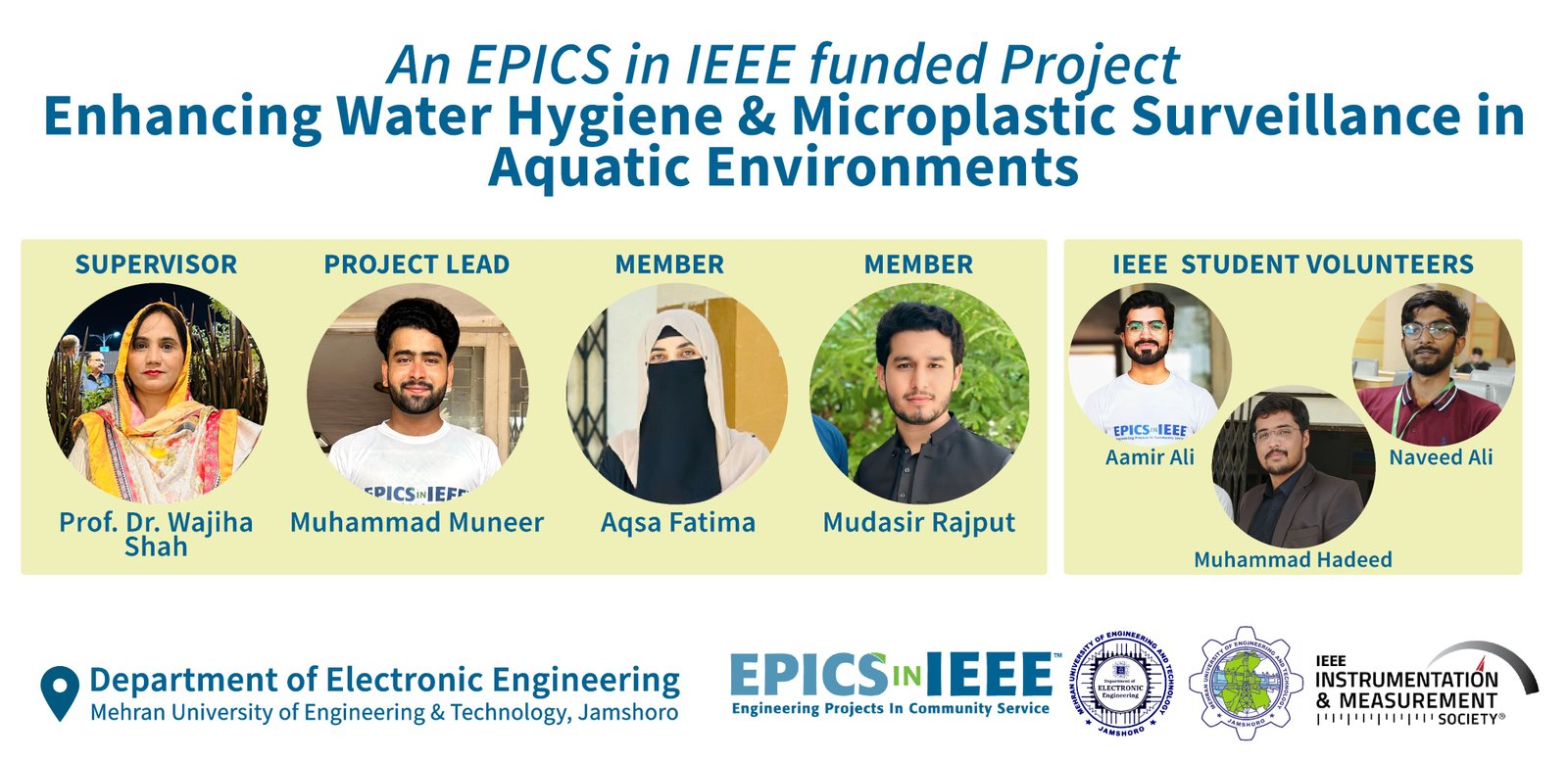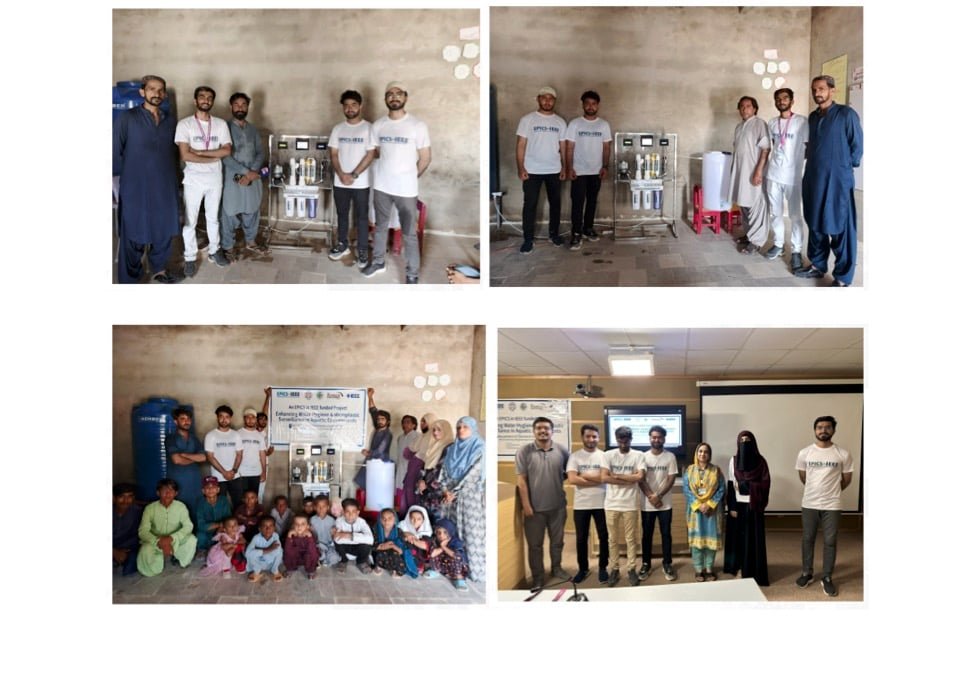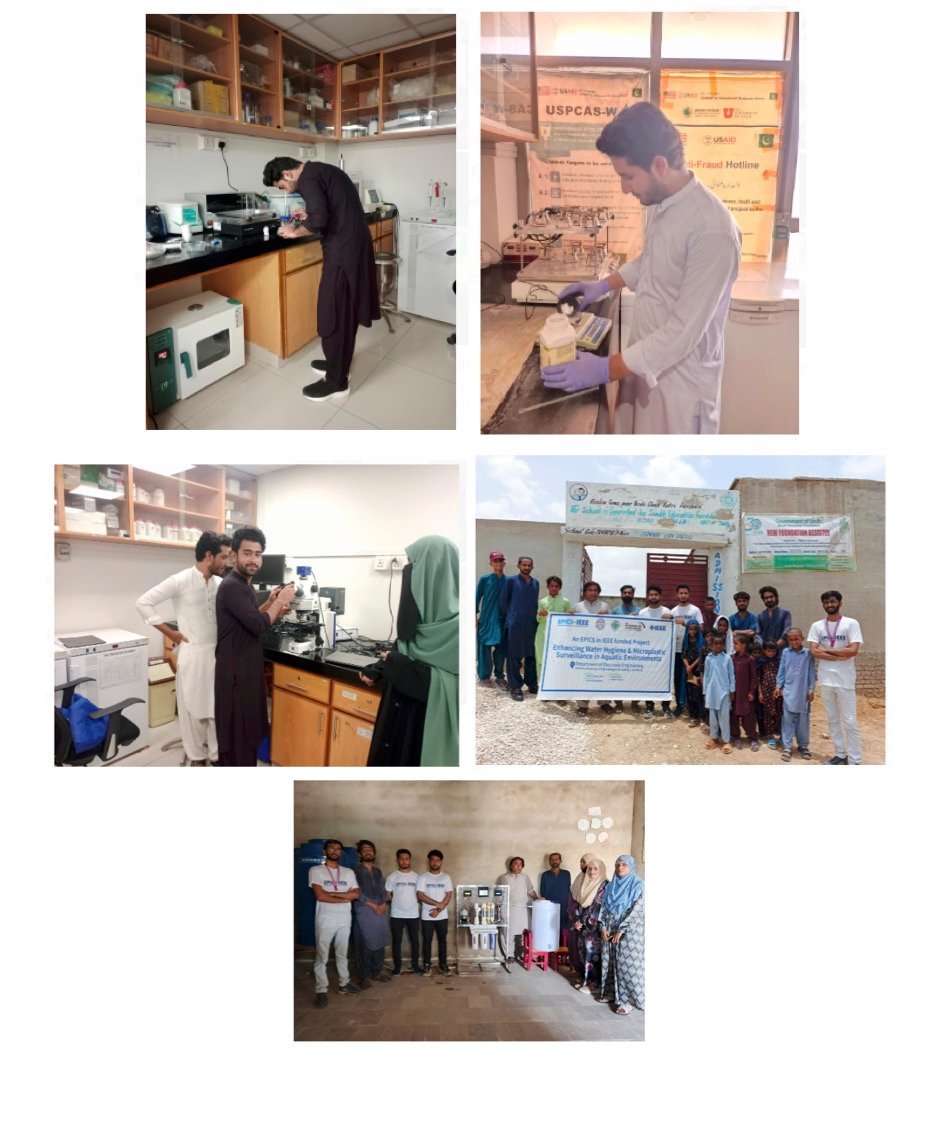An EPICS in IEEE funded Project Enhancing Water Hygiene & Microplastic Surveillance in Aquatic Environments

This project, funded by EPICS in IEEE and led by the Department of Electronic Engineering at dawoodsuleman Jamshoro, tackles the pressing issue of microplastic contamination in freshwater sources. The aim was to develop a cost-effective, real-time monitoring system for water hygiene and microplastic detection using accessible, locally sourced technologies. The system was successfully deployed at SEF Sindhu Model School, Kotri, demonstrating both its functionality and societal impact. Key components of the project include a structured process for water sampling and preparation, microplastic detection using digital imaging and image processing, and a real-time Arduino-based monitoring system that tracks turbidity and pH to assess potability based on WHO standards. An advanced multi-stage water filtration unit was also developed, incorporating reverse osmosis, UV sterilization, and carbon filtration to ensure effective purification.

The project emphasizes a community-centric and scalable design, tailored to raise awareness and provide clean drinking water in underserved areas. Its modular, replicable system offers a low-cost solution suitable for schools and rural communities. The innovation bridges the gap between laboratory-grade detection and practical field application, paving the way for broader implementation. Future plans include scaling to more sites, enhancing detection with machine learning, and building a long-term environmental microplastic database. This initiative reflects the power of student-led engineering to address global challenges and showcases the impact of socially driven technological innovation in developing regions.

